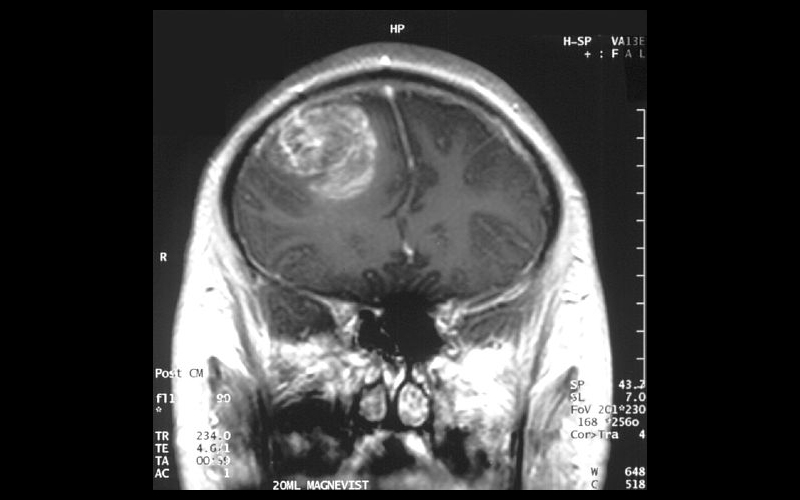

Clinical trials for a novel treatment for patients with glioblastoma, a deadly form of brain cancer, have shown rapid success, with some patients experiencing a dramatic decline in tumor size just days after their first treatment course.
Researchers from the Mass General Cancer Center, Massachusetts, have shared the results for the first three patients in a clinical trial of CAR-T cell therapy for glioblastoma.
CAR-T cell therapy, or CAR-T for short, won the Nobel Prize in Medicine, and works by using a patient’s own immune cells to fight cancer. It’s currently the most personalized way to treat the disease.
A patient’s cells are extracted, modified to produce proteins on their surface, and then injected back into the body to target the tumor directly. CAR-T therapies have been approved for the treatment of blood cancers but the therapy’s use for solid tumors is limited.
The trial, known as INCIPIENT, was designed to evaluate the safety of CARv3-TEAM-E T cells in patients with recurrent glioblastoma, which is the most common form of brain cancer in adults.
Combining two separate treatment strategies, CAR-T and bispecific antibodies, known as T-cell engaging antibody molecules or “TEAMs” the approach showed promise in preclinical models of glioblastoma.
Three patients were enrolled in the study, published in the New England Journal of Medicine, between March 2023 and July 2023.
Patients’ T cells were collected and transformed into the new version of CAR-TEAM cells, which were then infused back into each patient. The patients tolerated the infusions well, though nearly all had fevers and altered mental status soon after infusion.
Just days after a single treatment, patients experienced dramatic reductions in their tumors, with one patient achieving near-complete tumor regression in five days after one treatment.
“The CAR-T platform has revolutionized how we think about treating patients with cancer, but solid tumors like glioblastoma have remained challenging to treat because not all cancer cells are exactly alike and cells within the tumor vary,” said assistant professor Bryan Choi from Harvard Medical School said.
OTHER GLIOBLASTOMA NEWS: Achilles Heel for Glioblastoma Discovered—a Rogue Protein that Turns Natural Defenses Off
“This is a story of bench-to-bedside therapy, with a novel cell therapy designed in the laboratories of Massachusetts General Hospital and translated for patient use within five years, to meet an urgent need.”
One of the patients, a 72-year-old man, saw a 60.7% decrease in his tumor which was sustained for six months, while a 57-year-old woman had near complete tumor regression only five days after a single infusion.
The team says their results are exciting, but that much more research is needed to fine-tune this treatment.
MORE BRAIN CANCER TREATMENTS: Belgian Boy is the First Child in the World to Have Been Cured of Brain Stem Glioma, a Brutal Cancer
“We’ve made an investment in developing the team to enable translation of our innovations in immunotherapy from our lab to the clinic, to transform care for patients with cancer,” commented Marcela Maus, director of the Cellular Immunotherapy Program at the Mass General Cancer Center.
“These results are exciting, but they are also just the beginning—they tell us that we are on the right track in pursuing a therapy that has the potential to change the outlook for this intractable disease.”
“We haven’t cured patients yet, but that is our audacious goal.”
SHARE This Breakthrough Work On Social Media With Your Friends…